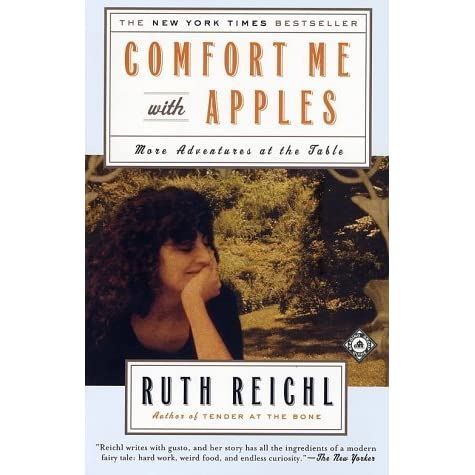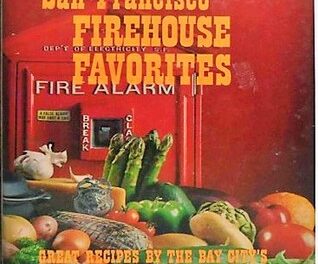Assistant Editor Lily Meyer: I loved reading about food long before I loved to cook. When I was a kid, I made a habit of swiping age-inappropriate books from my mom’s shelves. Some, like Ian McEwan’s Atonement, baffled me completely; some upset me; but occasionally, I picked up a book I adored, like food critic and ex-Gourmet editor Ruth Reichl’s memoirs Tender at the Bone and Comfort Me with Apples. Neither memoir is especially well suited to eight-year-olds, but the family dysfunction in the former and Berkeley commune sex in the latter sailed right by me. I was there to read about what Reichl ate.
At thirty, I still comfort myself with food writing. (Not so much with apples—sorry, Ruth!) No book cheers me up more reliably than Tamar Adler’s An Everlasting Meal. I have read it cover to cover ten times or more; I force it on my friends, who know it as “Lily’s bean book” or—my preferred term—”the bean Bible,” in honor of its excellent chapter on “the great fortune [of] eating beans, beans, beans.” As I draw closer to memorizing An Everlasting Meal, though, I am forced to seek consolation from other writers. Often, I revisit the essays collected in Laurie Colwin’s Home Cooking or a bit of Nigella Lawson’s frankly perfect How to Eat. I have read these books so often that I am confident they influence not only my cooking but my prose style. I certainly hope they have. All of them are warm, assertive, and welcoming, and all are filled with unshowy, compelling detail.
I do read about food for other reasons. Intellectual interest is a big one. Good food writing is often political, since what we buy, cook, and eat is always on some level a political choice. Reading writers like Alicia Kennedy, whose three-times-a-week newsletter is rigorously researched and exceptionally thoughtful, helps me make those choices explicit to myself. Reading the cookbook writer and journalist Toni Tipton-Martin, especially her cookbook Jubilee, has taught me as much American history as any of my college history classes did; ditto Michael Twitty, who adds Jewish and African diasporic history into the mix. Reading the culinary artist Lexie Smith’s foundational bread recipe taught me not only how to bake sourdough but how to be more patient. Midway through the recipe, Smith offers a gentle reminder that “the dough mostly benefits from your absence. This process is about time, not about you”—a lesson, it hardly bears saying, that applies to much more than bread.
Below is a small selection of some of my favorite food writing, chosen as a starter pack of sorts. Five of these six writers are food-world professionals; one, the poet Amy Key, is a dabbler like me. Four of six are female, which I suppose should not be surprising, given how feminized the habit of talking about cooking remains. All of them have helped shape my preferences in the kitchen and on the page. I hope they have some impact on yours too.
- Amy Key on capability, insecurity, and crab quiche
- Anthony Bourdain’s classic essay on a day and night at Les Halles
- Helen Rosner on chicken tenders
- Mayukh Sen (this one’s meta!) on Ntozake Shange and the power of food writing
- Tamar Adler on dinner for one
- Tejal Rao on love and oysters









